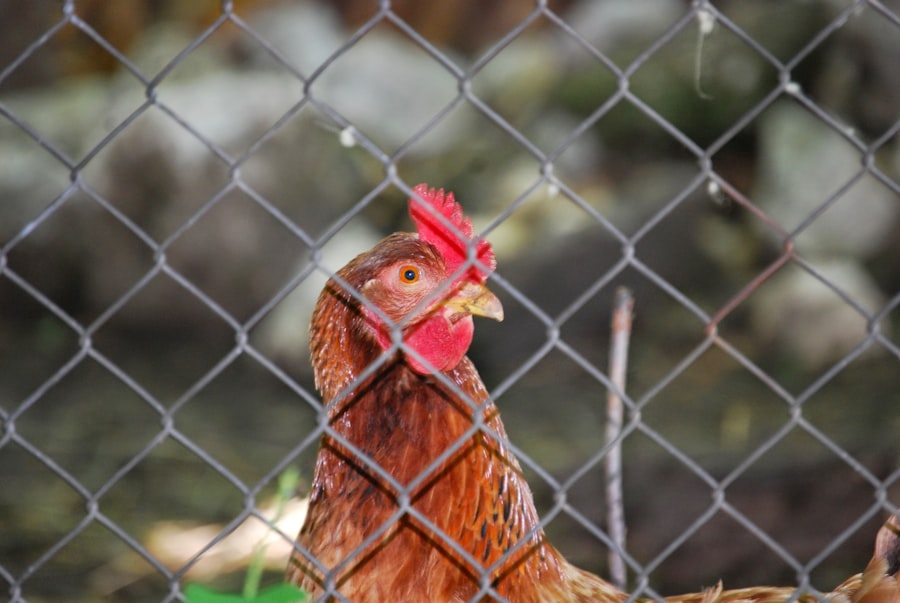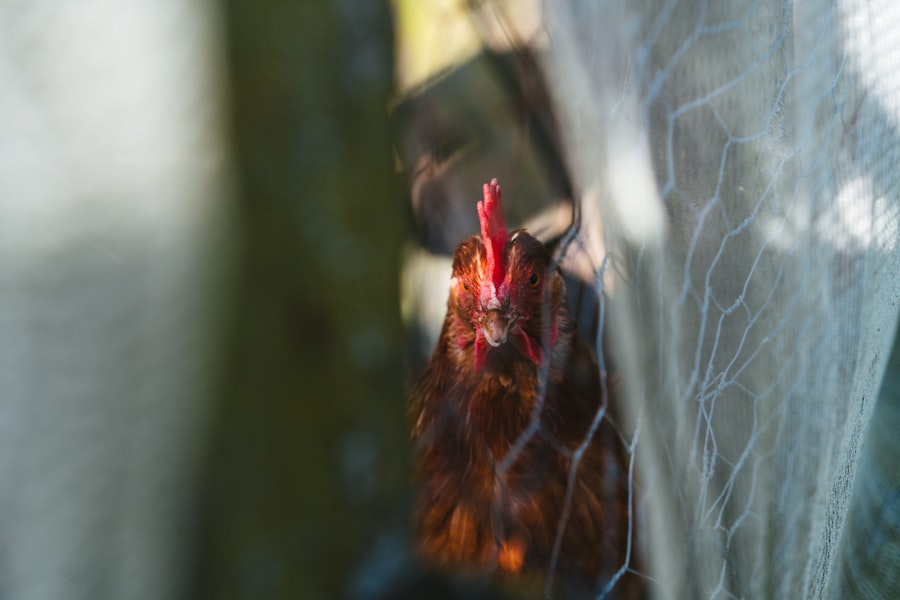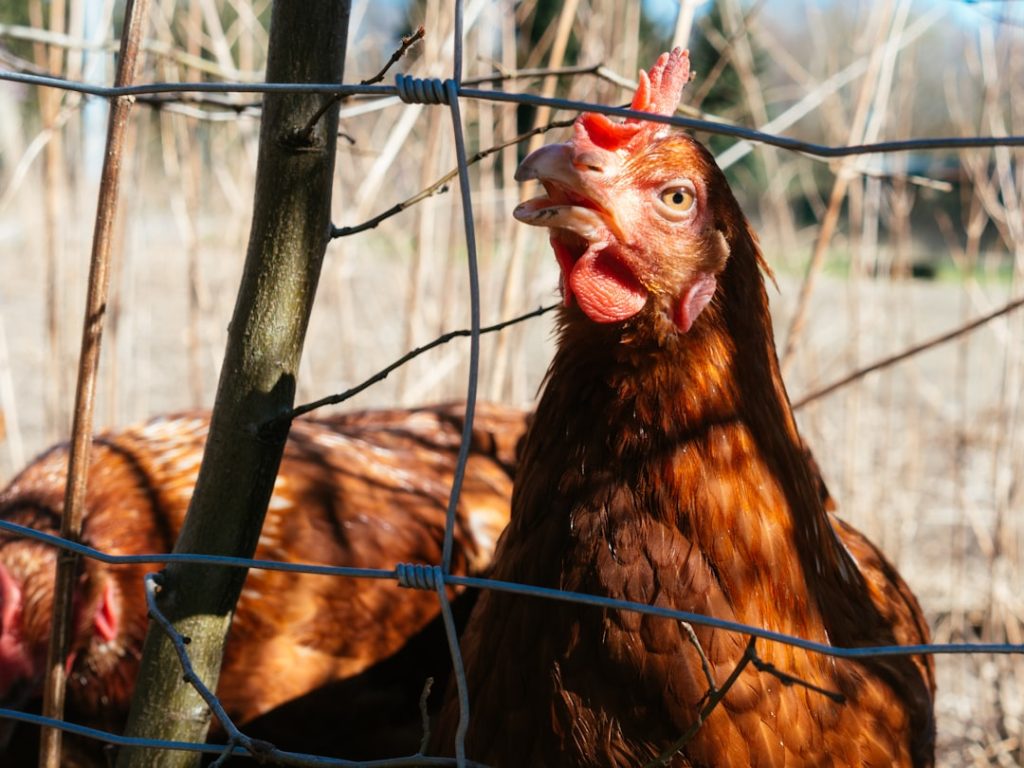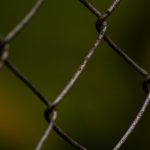Understanding chicken behavior is essential for effective management and prevention of predation. Chickens are naturally curious and social animals that forage for food and explore their environment. They are easily startled and can be skittish around unfamiliar objects or noises.
Chickens have a natural instinct to roost at night, seeking high perches for safety from predators. This knowledge allows chicken owners to anticipate potential predation risks and implement proactive protective measures. Chickens establish a social hierarchy within their flock, known as a pecking order, with dominant birds asserting authority over subordinate ones.
This social structure influences how chickens respond to threats, as dominant birds may lead the defense of the flock while others follow. Chickens also have a strong instinct to seek out food sources, which can make them vulnerable to predators attracted to the same resources. By understanding these natural behaviors, chicken owners can develop strategies to protect their flock from predation and create a safe, secure environment for their birds.
Table of Contents
- 1 Creating Physical Barriers
- 2 Implementing Deterrents
- 3 Providing Alternative Food Sources
- 4 Training Your Chickens
- 5 Utilizing Natural Predators
- 6 Regular Monitoring and Maintenance
- 7 FAQs
- 7.1 What are some effective ways to keep chickens from eating your garden?
- 7.2 What types of physical barriers can be used to keep chickens out of the garden?
- 7.3 What are some alternative sources of food and entertainment for chickens?
- 7.4 How can chickens be trained to stay away from the garden?
- 7.5 Are there any plants that can be used to deter chickens from the garden?
Key Takeaways
- Chickens have natural behaviors that can be understood to better protect them from predators.
- Physical barriers such as fences and netting can be effective in keeping predators away from chickens.
- Deterrents like scarecrows, noise makers, and predator urine can help keep predators at bay.
- Providing alternative food sources for predators can help divert their attention away from chickens.
- Training chickens to seek shelter and respond to danger can help keep them safe from predators.
- Utilizing natural predators like dogs, cats, or birds of prey can help keep chicken predators in check.
- Regular monitoring and maintenance of fences, coops, and other protective measures is essential for keeping chickens safe from predators.
Creating Physical Barriers
Creating Physical Barriers
One effective way to prevent chicken predation is by creating physical barriers around the coop and run area. This can include installing sturdy fencing around the perimeter of the chicken enclosure, using hardware cloth to cover windows and vents, and securing the coop with latches and locks to prevent unauthorized entry.
Securing the Run
Additionally, adding a roof or netting over the top of the run can help deter aerial predators such as hawks and owls from targeting the chickens.
Maintaining Predator-Proof Barriers
Another important aspect of creating physical barriers is ensuring that the coop and run are predator-proof. This means checking for any potential entry points such as gaps in the fencing, loose boards, or holes in the ground that could allow predators to gain access to the chickens. By regularly inspecting and maintaining the physical barriers around the chicken enclosure, owners can significantly reduce the risk of predation and create a secure environment for their flock.
Implementing Deterrents

In addition to physical barriers, implementing deterrents can help discourage predators from targeting chickens. One common deterrent is the use of motion-activated lights or sound devices that startle predators when they approach the chicken enclosure. These devices can be effective in deterring nocturnal predators such as raccoons, foxes, and coyotes, as they disrupt their hunting behavior and make them think twice about approaching the area.
Another effective deterrent is the use of predator scent repellents, such as coyote or wolf urine, which can create the illusion of a larger predator presence in the area. This can make potential predators wary of entering the vicinity of the chicken coop and reduce the likelihood of an attack. Additionally, some chicken owners use visual deterrents such as scarecrows, reflective tape, or predator decoys to create a sense of danger for potential predators.
Providing Alternative Food Sources
One strategy for preventing chicken predation is to provide alternative food sources for potential predators. This can help reduce the incentive for predators to target chickens as a food source and encourage them to seek out other sources of sustenance. For example, placing bird feeders or providing food scraps in a designated area away from the chicken enclosure can help divert predators’ attention and reduce the risk of an attack on the flock.
Additionally, implementing good waste management practices can help minimize food sources that attract predators to the area. This includes regularly cleaning up spilled feed, securing garbage bins, and removing any food scraps or leftovers from the vicinity of the chicken coop. By reducing the availability of food for potential predators, chicken owners can help mitigate the risk of predation and create a safer environment for their flock.
Training Your Chickens
Training chickens to recognize and respond to potential threats can also help prevent predation. One method of training is to use a specific sound or signal to alert the chickens to danger, such as clapping your hands or using a whistle. By consistently using this signal when there is a perceived threat, chickens can learn to associate the sound with potential danger and take evasive action, such as seeking shelter in the coop or run.
Another aspect of training involves acclimating chickens to human presence and handling, which can make them less skittish and easier to manage in potentially dangerous situations. By spending time with your chickens, gently handling them, and providing treats, you can build trust and familiarity with your birds, making it easier to manage them in the event of a predator threat.
Utilizing Natural Predators

Guardian Animals: A Protective Force
Introducing guardian animals such as dogs or livestock guardian breeds can help deter predators from approaching the chicken enclosure. These animals are trained to protect livestock from potential threats and can serve as an effective deterrent against predators such as foxes, raccoons, and coyotes.
Predatory Birds: Nature’s Balancers
Another natural predator that can help control potential threats is introducing predatory birds such as hawks or owls to the area. These birds of prey can help keep smaller predators in check and reduce the risk of attacks on your flock.
Responsibility in Introducing Natural Predators
However, it’s important to carefully consider the potential impact on local wildlife populations and ensure that introducing natural predators is done in a responsible and ethical manner.
Regular Monitoring and Maintenance
Regular monitoring and maintenance of the chicken enclosure are essential for preventing predation and ensuring the safety of your flock. This includes conducting regular inspections of physical barriers such as fencing, locks, and latches to ensure they are secure and in good condition. Additionally, checking for any signs of potential entry points for predators such as holes in the ground or gaps in the fencing is crucial for maintaining a predator-proof environment.
It’s also important to monitor the surrounding area for any signs of predator activity, such as tracks, scat, or evidence of attempted entry into the chicken enclosure. By staying vigilant and aware of potential threats, chicken owners can take proactive measures to address any vulnerabilities and reduce the risk of predation on their flock. In conclusion, understanding chicken behavior, creating physical barriers, implementing deterrents, providing alternative food sources, training your chickens, utilizing natural predators, and regular monitoring and maintenance are all essential strategies for preventing chicken predation.
By taking proactive measures to protect your flock, you can create a safe and secure environment for your chickens and minimize the risk of predation from potential threats.
If you’re looking for ways to keep your chickens from eating your garden, you may also be interested in learning about duck mating season. Understanding the mating habits of ducks can help you plan for breeding and egg production. Check out this article on duck mating season to learn more about this topic.
FAQs
What are some effective ways to keep chickens from eating your garden?
Some effective ways to keep chickens from eating your garden include using physical barriers such as fences or chicken wire, providing alternative sources of food and entertainment for the chickens, and training them to stay away from the garden area.
What types of physical barriers can be used to keep chickens out of the garden?
Physical barriers such as fences, chicken wire, or netting can be used to keep chickens out of the garden. These barriers should be tall enough and securely installed to prevent the chickens from flying or climbing over them.
What are some alternative sources of food and entertainment for chickens?
Providing chickens with a designated feeding area stocked with plenty of their favorite treats, as well as toys and activities to keep them entertained, can help deter them from venturing into the garden.
How can chickens be trained to stay away from the garden?
Chickens can be trained to stay away from the garden by using positive reinforcement, such as rewarding them with treats when they stay out of the garden area, and by using deterrents such as loud noises or motion-activated sprinklers.
Are there any plants that can be used to deter chickens from the garden?
Plants with strong scents or prickly textures, such as lavender, rosemary, or thorny bushes, can be used to deter chickens from entering the garden. Additionally, planting a separate area of the garden with chicken-friendly plants can help redirect their attention away from the main garden.
Meet Walter, the feathered-friend fanatic of Florida! Nestled in the sunshine state, Walter struts through life with his feathered companions, clucking his way to happiness. With a coop that’s fancier than a five-star hotel, he’s the Don Juan of the chicken world. When he’s not teaching his hens to do the cha-cha, you’ll find him in a heated debate with his prized rooster, Sir Clucks-a-Lot. Walter’s poultry passion is no yolk; he’s the sunny-side-up guy you never knew you needed in your flock of friends!







